Artificial Intelligence and the evolution of warfare
Report on 8th Beijing Xiangshan Forum
by Claudio Bertolotti
The 8th Beijing Xiangshan Forum unfolded in China from 24th to 26th October.
The event is organised on a yearly basis by the host government’s Ministry of Defence, which invites international partners and representatives to discuss global security issues.
In 2018, the Italian delegation appointed by Defense Minister Elisabetta Trenta was led by Fabrizio Romano (Minister Plenipotentiary), Maurizio Ertreo (Director of the Military Centre for Strategic Studies – CeMiSS) and Claudio Bertolotti (Head of Research at CeMiSS).
The present article reports on the 4th session which took place on 25th October, and which focused on Artificial Intelligence and its impact on the conduct of war.
A previous entry summarized some of the speakers’ views regarding the military applications of AI.
Here, we will examine the role of AI in the next phase of Revolution in Military Affairs (RMA -in other words, the evolution of warfare-) which bears direct consequences on the very same concept of war and the decision making process. «A true revolution» – according to ANM Muniruzzaman, President of the Bangladeshi Institute of Peace and Security Studies – «a revolution to the deadly detriment of those who do not adjust to AI’s offensive and defensive capacities».
Maj. Gen. Praveen Chandra Kharbanda, a researcher with the Indian Center for Land Warfare Studies introduced his speech by emphasizing AI’s potential in imposing a radical change onto RMA.
For instance, it can aptly support the decision-making process by providing a prompt analysis of all primary and secondary factors that could affect strategic and operational planning. Furthermore, the combination of electronic warfare and cyber capacity grants an extraordinary offensive and defensive military leverage, as it allows a thorough monitoring of enemy targets without exposing one’s own pilots and recognition assets to risks and threats.
The same thing applies to critical infrastructures, whose security and safety can still be guaranteed with limited resources, be it in terms of soldiers or equipment. Within this context, the deployment of (partially or totally) remote controlled or AI controlled robots, without entirely replacing troops on the battlefield, nevertheless becomes instrumental in supporting them; and represents a technological and cultural development which, in asymmetric conflicts above all, can still safeguard the human component’s primacy.
On the virtual level, an ever more realistic wargaming activity takes place, which greatly benefits from AI in terms of both training and planning. And as yet another dimension of the contemporary battlefield, the social media represent a great opportunity for surveillance and analysis, in spite of the looming threat of mass control. The speaker concluded his interventions by underlining how, with specific reference to wargaming, the private sector plays a fundamental role.
Supremacy in the intelligence sector is what separates winners from losers on the global battlefield. And this is where AI makes a difference.
In his intervention Zeng Yi, Vice-Director General of China North Industries Group Corporation Limited (NORINCO GROUP) explained that the traditional, combat ‘mechanic system’ is undergoing great and rapid developments thanks to AI, while cyberwarfare also grows in efficiency. As a consequence, command and control systems will increasingly be influenced by AI technology and capabilities, thus also requiring a regular updating in the field of military affairs. Automatic systems will also increasingly play a leading role, particularly in training and direct combat. It’s now clear, according to Zeng Yi, that «what separates winners from losers on the global battlefield is supremacy in the intelligence sector, where the support of Artificial Intelligence is becoming paramount».
«Artificial Intelligence is about to play its part in combat. But is it up to the task?» Such is the vexata quaestio that Zafar Nawaz Jaspal, Professor at the School of Politics and International Relations of Quaid-I-Azam University (Pakistan) indirectly puts to his audience. His analysis went on to focus on the evolution of intelligence, and the forthcoming, tactical role of AI (which essentially tanslates as ‘battlefield-bound’); as far as the strategic and operational ones, we are not there just yet, despite progress being made. The speaker then reminded his audience that, should a direct, ground confrontation between two actors with equal military capabilities take place, AI would cease to represent a crucial factor. In his conclusions, Zafar Nawaz Jaspal called for further, urgent and permanent development of AI through investments, research and testing.
Artificial Intelligence can affect social behaviour by influencing and altering social structures and functions.
Leonid Konik, CEO of Russian company COMNEWS Group outlined how AI made two key contributions to the military and intelligence fields: in the first place, it represents a launching platform for future, autonomous weapons; secondly, it’s fundamental in problem solving and decision making processes.
Focusing his speech on the social implications of AI, the speaker illustrated how Artificial Intelligence could potentially be used to influence and alter social structures and functions, and to induce a change in individuals’ attitudes and opinions: an issue which clearly paves the ground for a critical analysis on ethical issues linked to certain applications of AI within RMA.
According to Konik, AI’s diffuse application does indeed induce changes in the social behaviour of populations which are subjected to remote-controlled surveillance. And it doesn’t make a difference whether such control is exercised by an external actor (like an enemy or an influencer) or by one’s own government: citizens simply adapt their behaviour to the new situation. In the same way, AI can bring about shifts in the enemy’s attitude, specifically in operational and tactical terms; the taleban in Afghanistan for instance, reshaped their techniques and tactics as a result of the deployment of drones.
Can we figure out the impact of robots in asymmetric wars, in Iraq or Afghanistan for instance? How would that affect the mind of the enemy and of the local populations?
The degree of development and deployment of Artificial Intelligence is contingent upon an individual actor’s ethical issues and constraints -concluded the Russian speaker-. But it’s those who overlook ethics and push the boundaries of AI, who will take the lead in the battlefield.










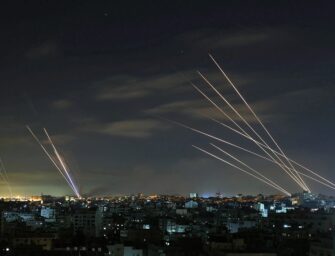


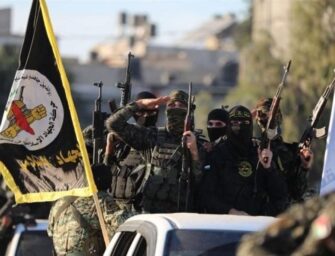
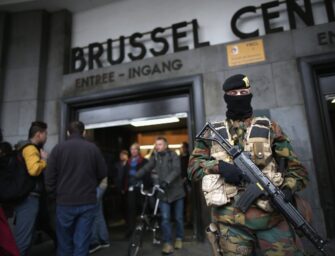




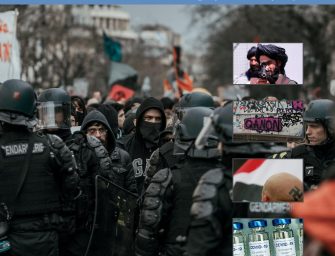
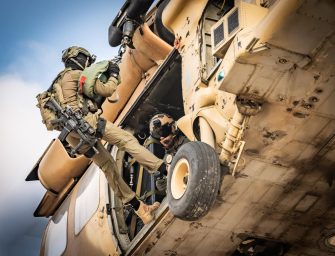
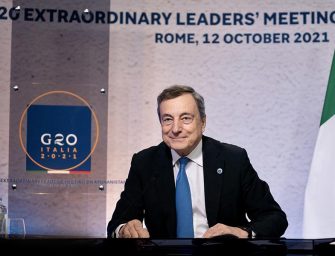


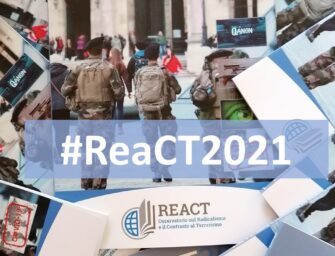




There are no comments
Add yours